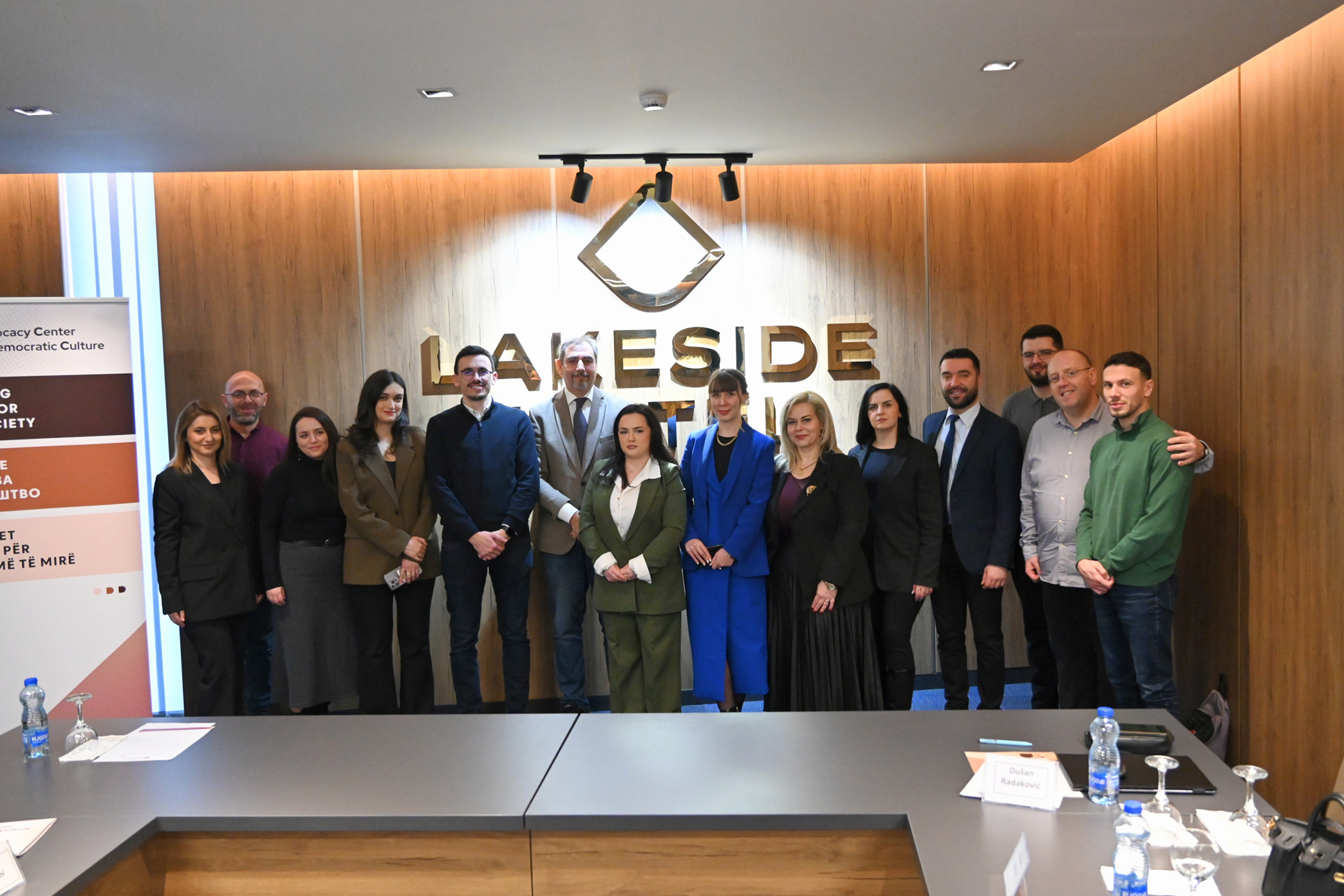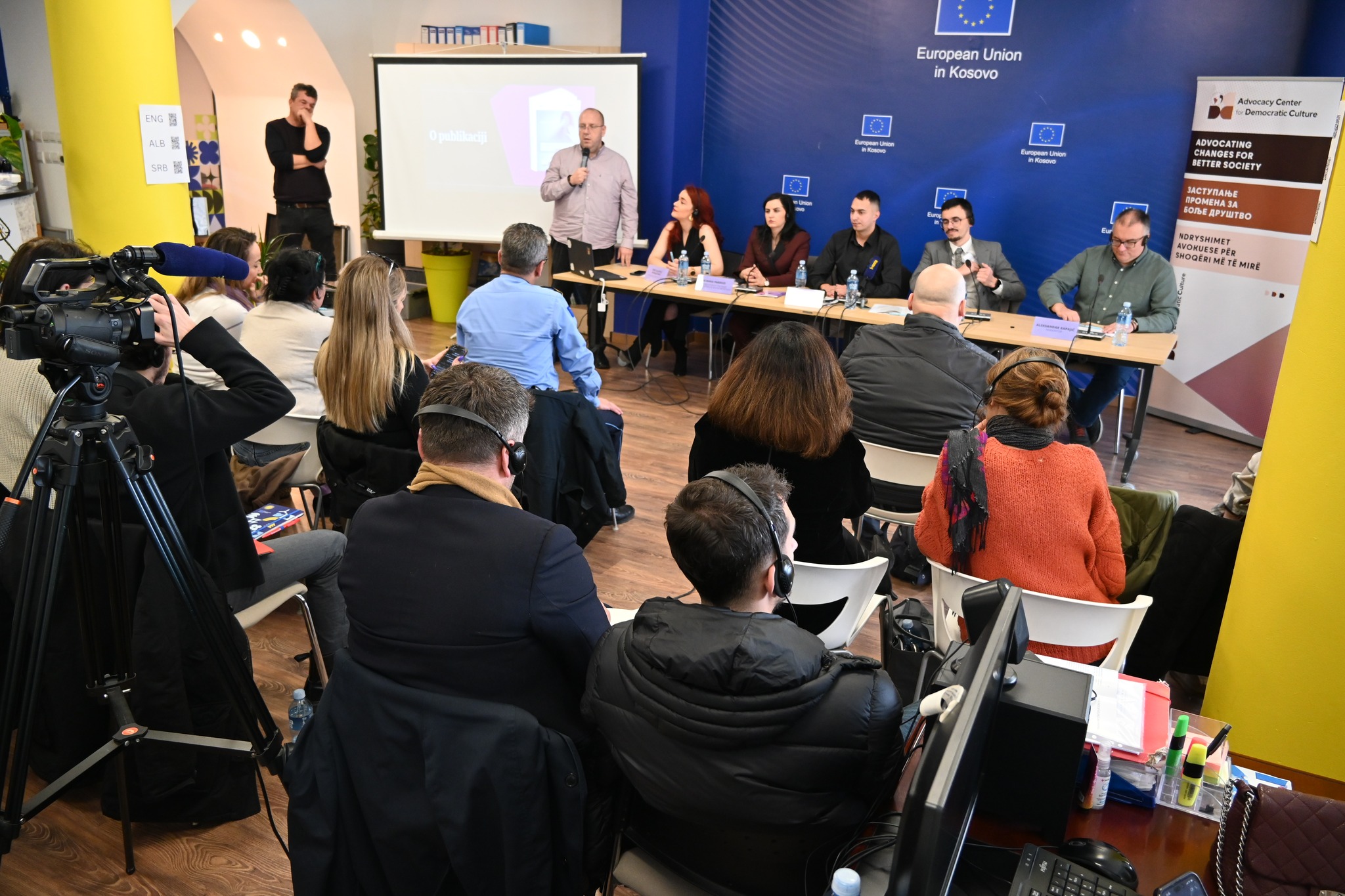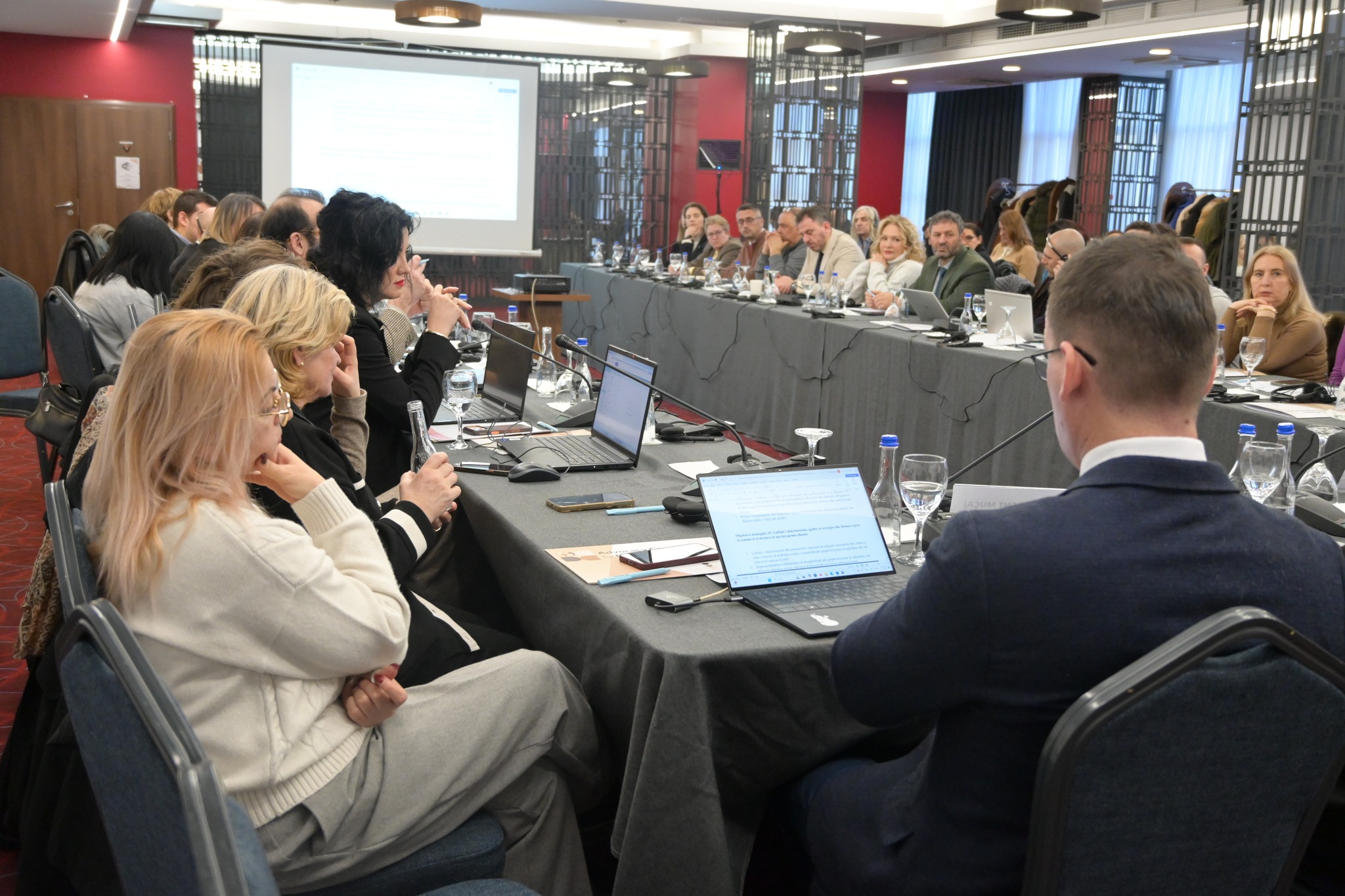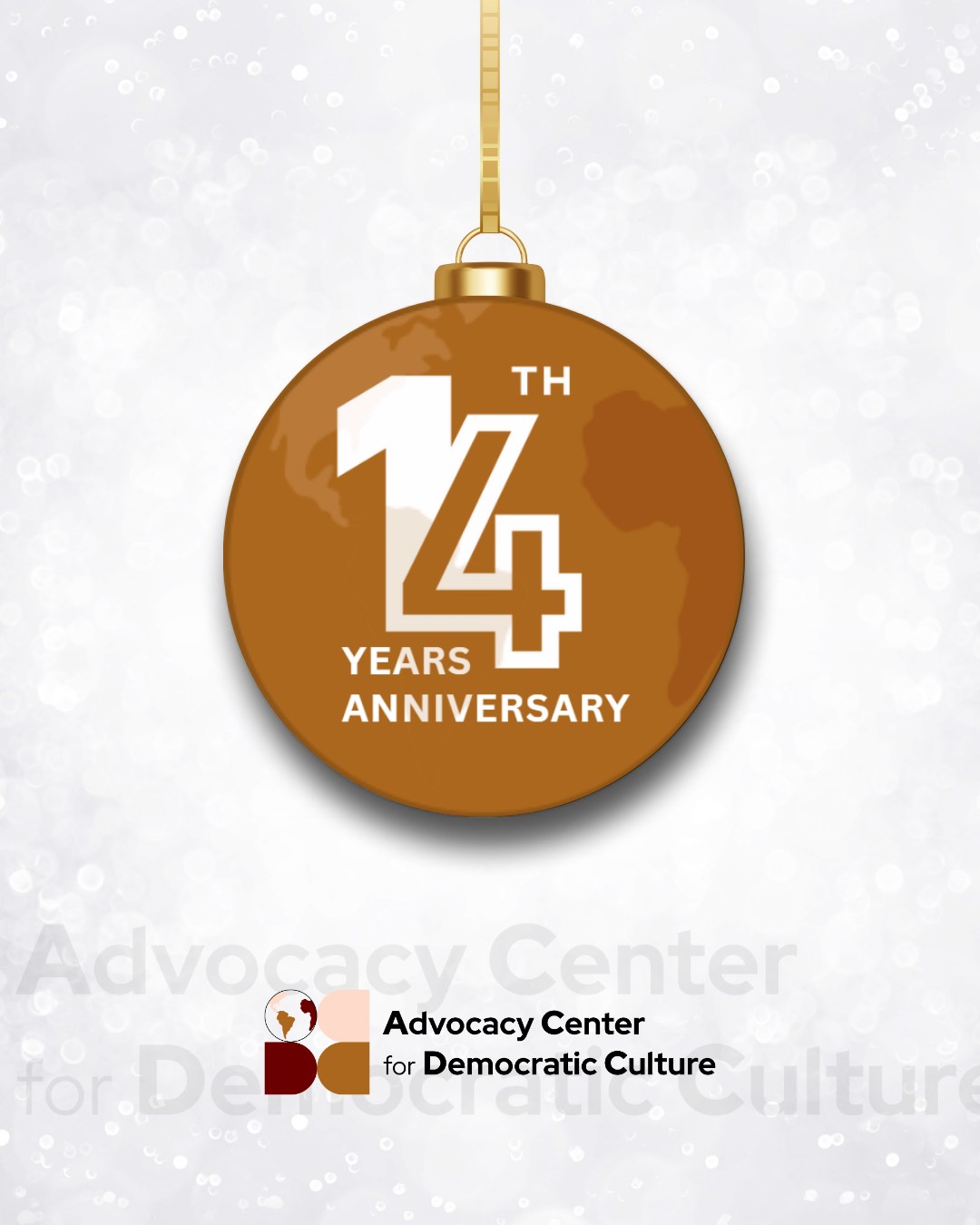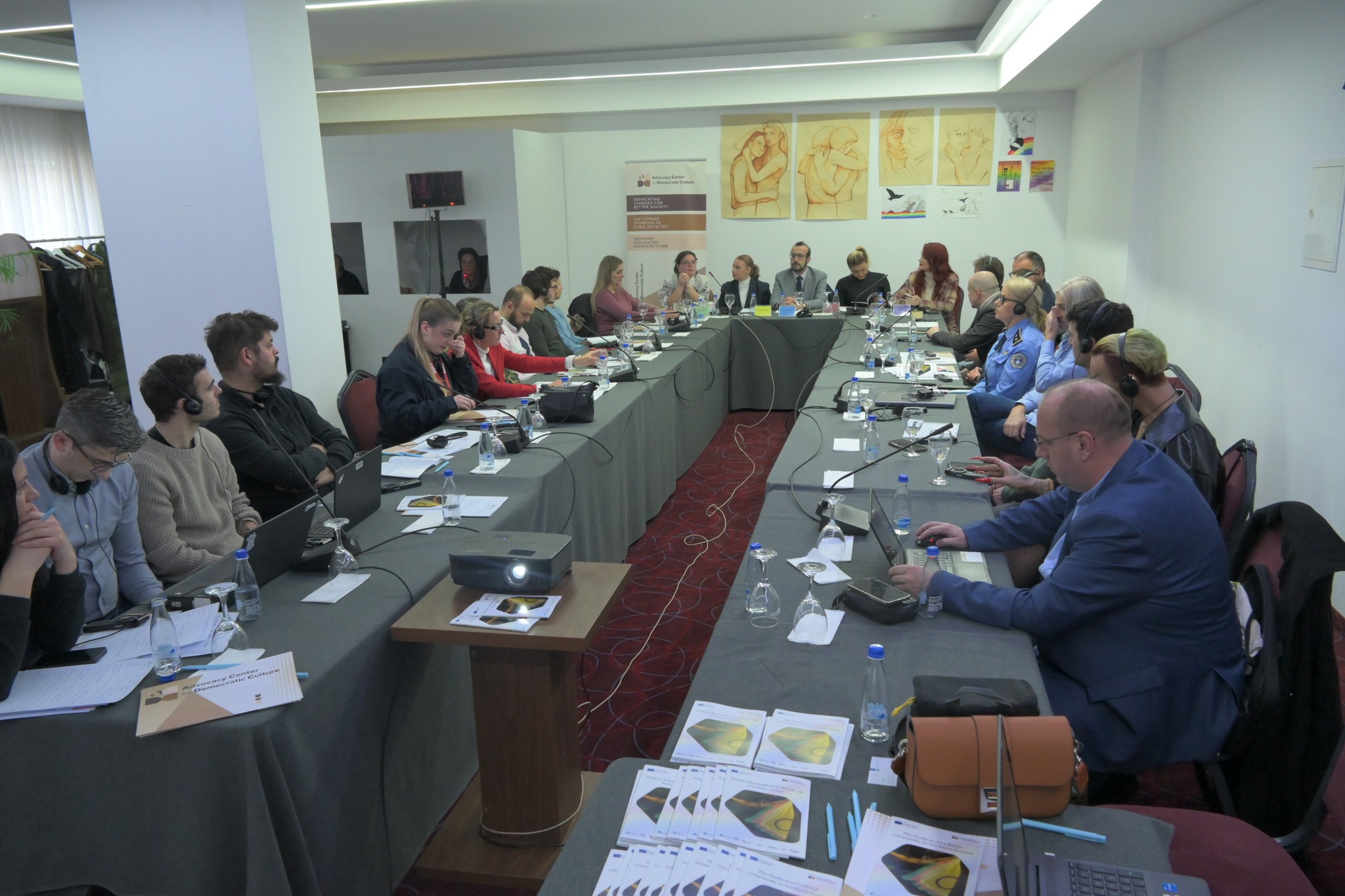01.06.2022. » 09:20
Op-ed - Reconciliation process - remembering the missing!
When it comes to the Kosovo area, it has been very turbulent for the last 30 years. Tensions between ethnic groups in multiethnic communities exist and date back many years. The chaotic period of the war brought with it, in addition to material and infrastructural losses, many human losses that had a damaging effect on the entire multiethnic community. According to the statistics, more than 3,050 people are missing, including Serbs, Albanians, Bosniaks, and Roma civilians. After the war, the Commission for Missing Persons was formed, as well as the Registers of Missing Persons, which deal with research, discovery, and registration of missing persons into the register.
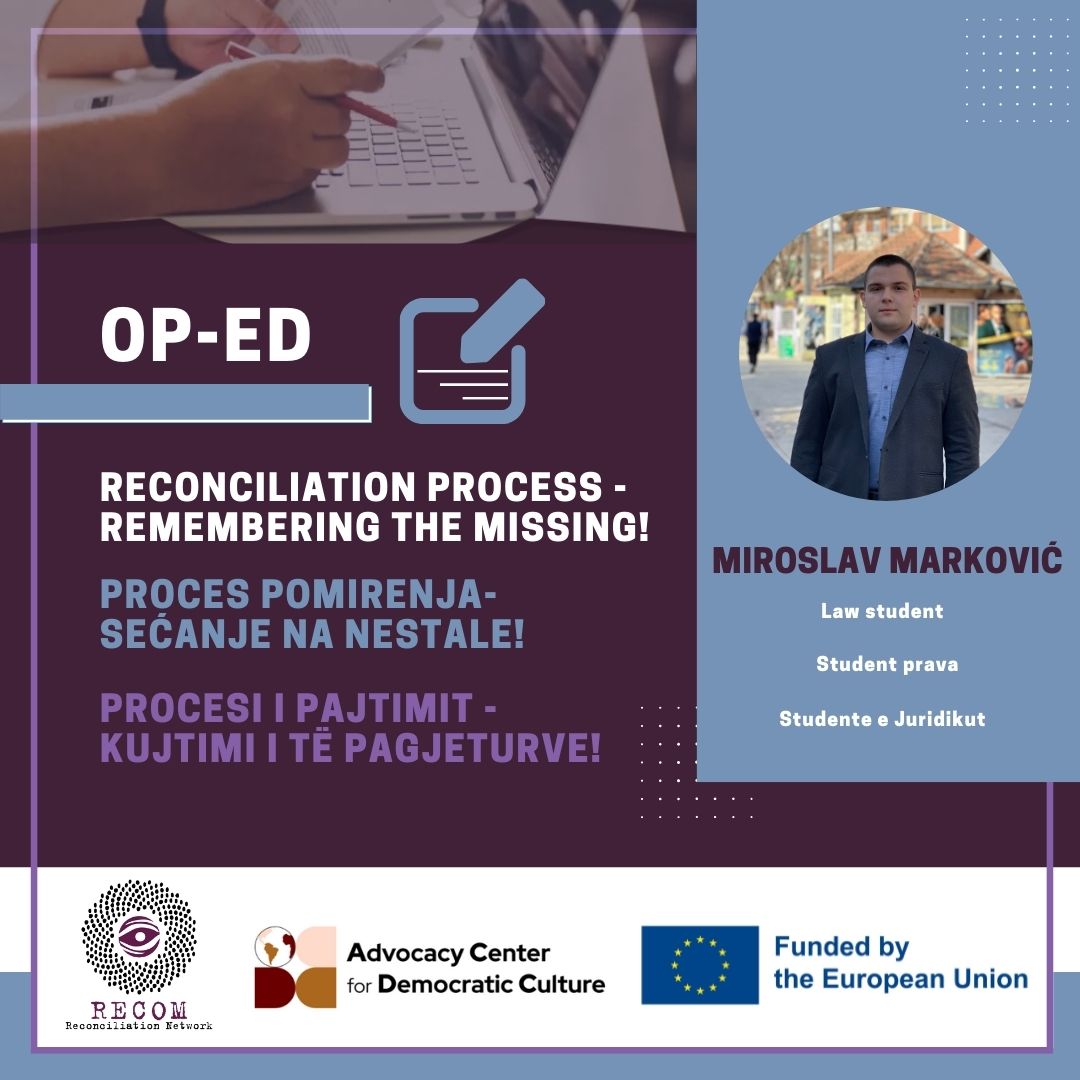
When it comes to the Kosovo area, it has been very turbulent for the last 30 years. Tensions between ethnic groups in multiethnic communities exist and date back many years. The chaotic period of the war brought with it, in addition to material and infrastructural losses, many human losses that had a damaging effect on the entire multiethnic community. According to the statistics, more than 3,050 people are missing, including Serbs, Albanians, Bosniaks, and Roma civilians. After the war, the Commission for Missing Persons was formed, as well as the Registers of Missing Persons, which deal with research, discovery, and registration of missing persons into the register.
In my opinion, the missing civilian population is collateral damage caused by proving the (in) power of other members of the multiethnic community. There are three spheres into which the losses of the missing can be divided:
1. Loss of a family member;
2. Loss of members of an ethnic group;
and as the most important one,
3. Loss of innocent people and negative impact on the natural population increase of the whole area.
There must be an awareness among people that kidnapping and execution of people will not lead to escalation of any conflicts, whether physical, war, religious or unfounded.
Everyone must keep in mind that the disappearance of a person violates not only moral principles but also the rights and freedoms proclaimed by the European Convention on Human Rights (ARTICLE 1 Obligation to respect human rights, ARTICLE 2 Right to life, ARTICLE 3 Prohibition of torture, ARTICLE 5 Right to freedom and security, ARTICLE 4. Prohibition of slavery and others...).
In the practice of our positive and international positive law, this issue is gradually more present. Various solutions and conventions are proclaimed, that prohibit any threat to fundamental life rights, including the right to existence.
The fact is that the people of Kosovo are "doomed" to live together and that they must coexist and cooperate. Innocent people who have disappeared do not contribute to this form of coexistence or reconciliation.
As noted above, there are numerous adopted laws and conventions (the most important is the International Convention for the Protection of All Persons from Enforced Disappearance) that assert protection against the threat to fundamental freedoms. These rights are specific in some conventions (Convention on the Rights of the Child) because they apply only to certain persons (mainly adolescents), where forced labor, prostitution, exploitation, kidnapping, etc. are expressly prohibited. On the positive international law that regulates this matter, it is inevitable to mention the Hague Convention on the Civil Aspects of International Child Abduction of 1980.
Any conduct of a person that endangers the integrity of another person, both in the area of the sovereignty of a country and in the international territory, is punishable. No one should endanger the existence of a person, his being, either physically or mentally. I think this issue requires even more attention and additional study as well as constant improvement both in our country and in the world because we are all witnesses that such things unfortunately still happen.
The missing must be the basis for reconciliation between the two sides; they should be a bridge between justice and reconciliation, a bridge that will unite awareness and separate evil, that will serve as a reminder of the suffering and never allow the same thing to happen again.
The pain that the missing and their absence cause can truly be experienced by their families, friends, or acquaintances, but also all of us as human beings must understand that pain, that absence and not allow it to happen. I believe that, when you look at the general state of affairs, all members of the multiethnic community are damaged in terms of missing persons. That should be the point that will lead to reconciliation.
Latest news

